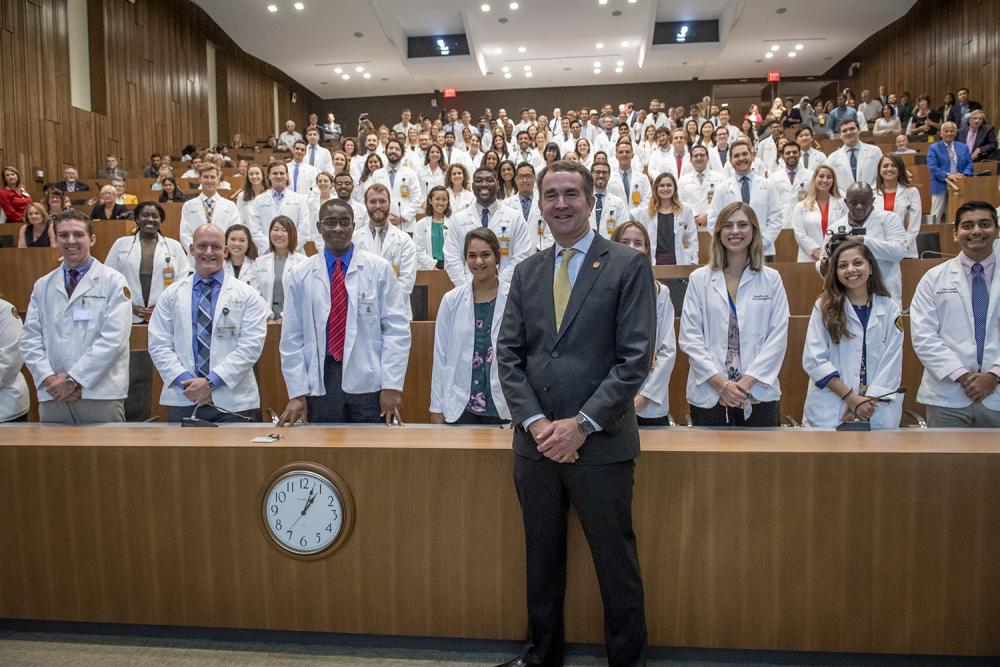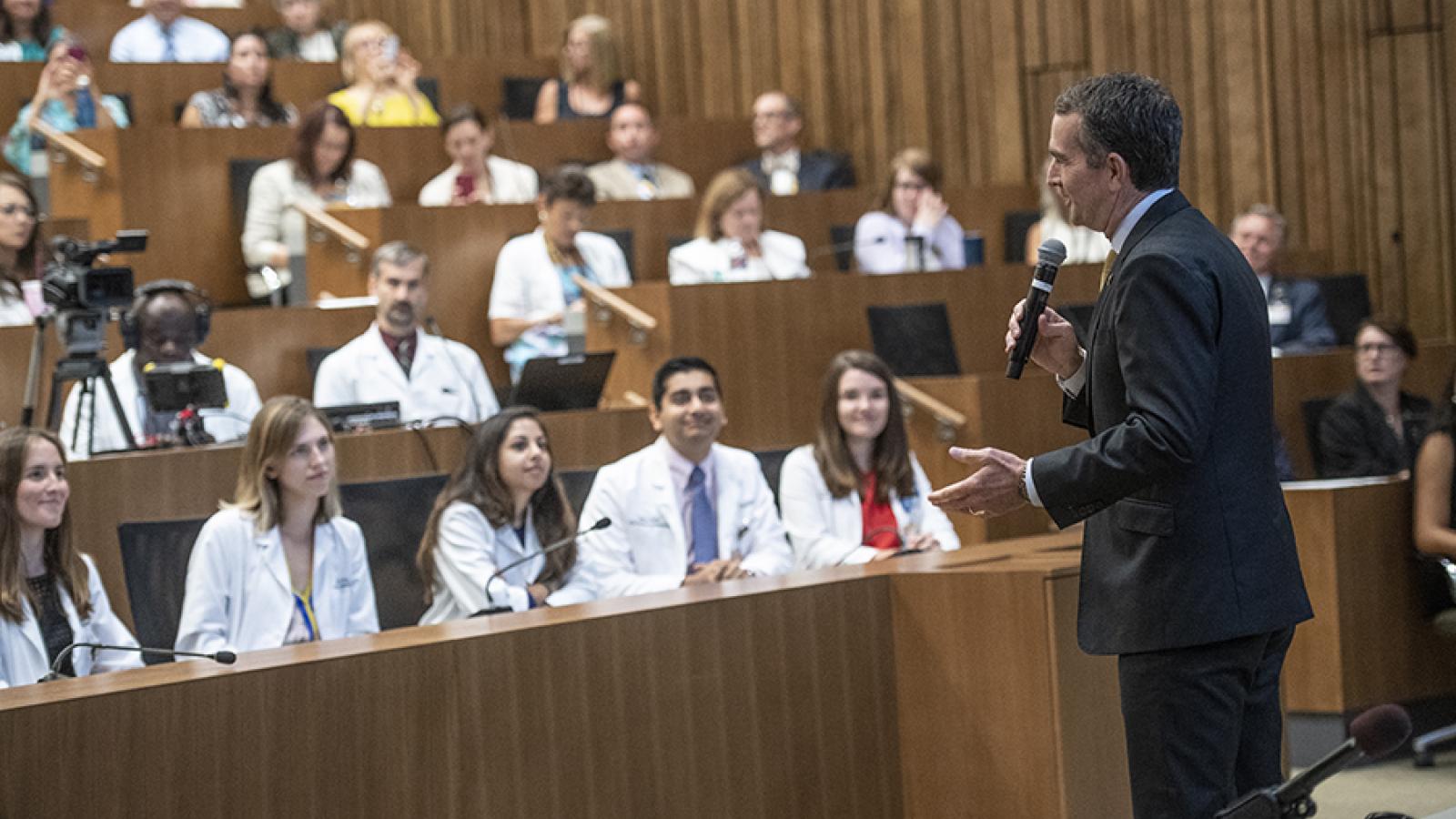
Governor Ralph Northam, M.D., speaks with students, faculty and staff from accross the MCV Campus about the opioid epidemic.
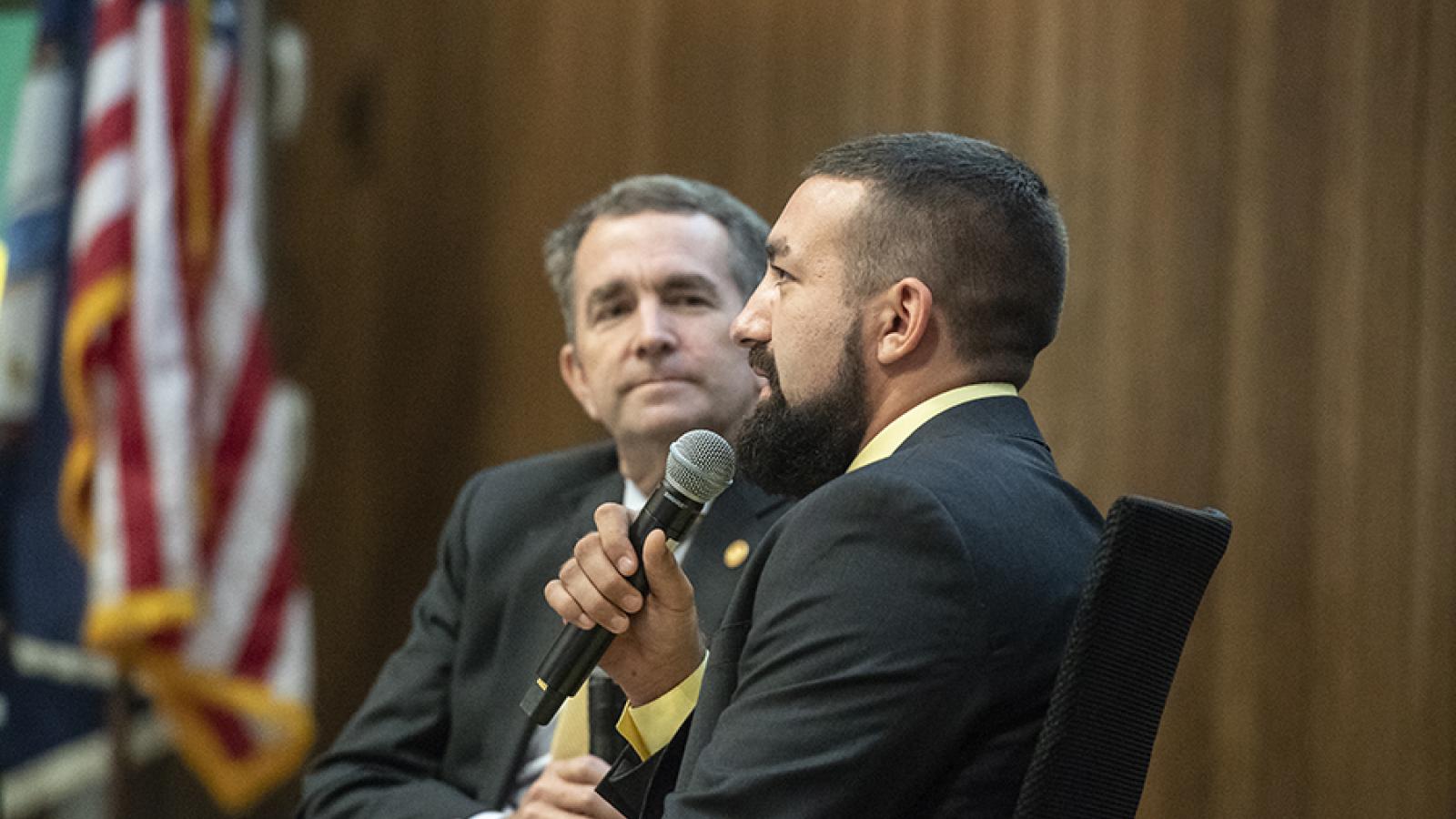
Ryan Hall speaks with Governor Ralph Northam in front of MCV Campus students, faculty and staff about his struggle with opioid addiction, which began after he sufferred an injury at a high school football game. Photo: Allen Jones, VCU University Marketing
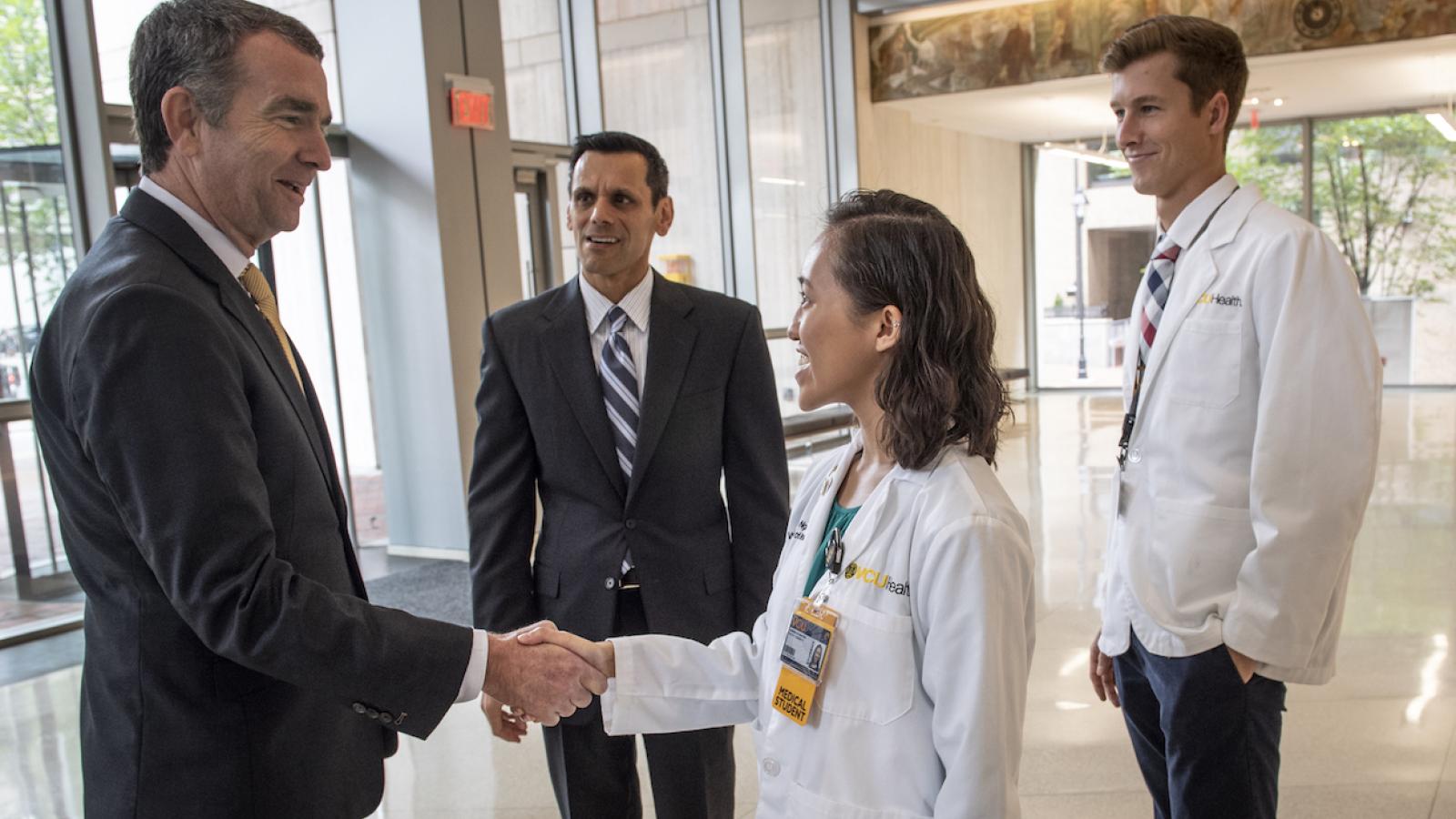
Gov. Ralph Northam and VCU President Michael Rao, Ph.D., meet with School of Medicine students. Photo: Allen Jones, VCU University Marketing
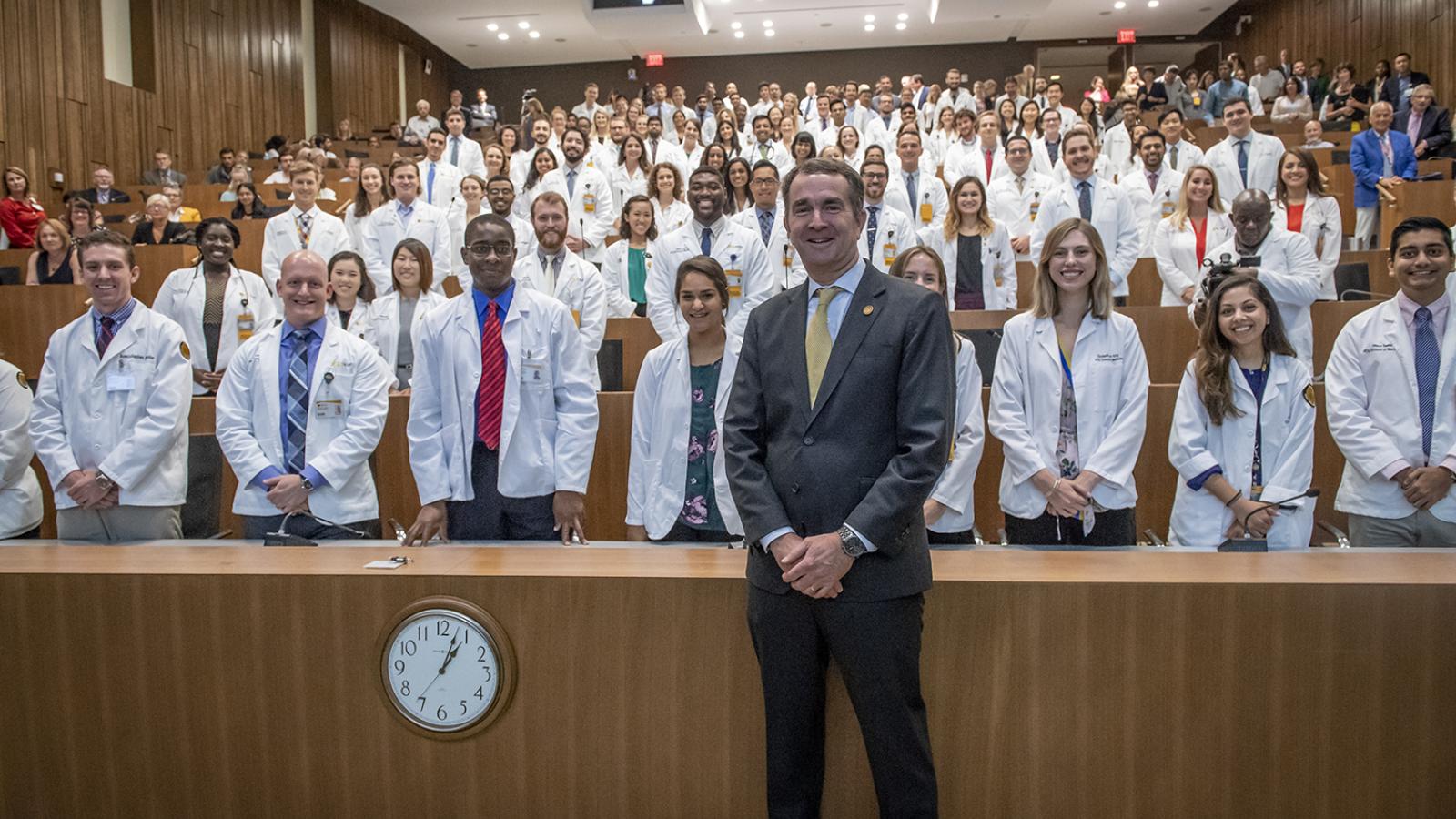
Gov. Ralph Northam poses with VCU School of Medicine students after discussing the opioid crisis with them on August 20.
Governor Northam Discusses Opioid Epidemic Challenges and Solutions with VCU Health
Virginia Gov. Ralph Northam visited the MCV Campus this month to discuss the ongoing opioid epidemic in Virginia, which caused 1,227 overdose deaths in the Commonwealth in 2017.
Addressing VCU School of Medicine students, faculty and staff, Gov. Northam spoke from a perspective that most governors across the country do not possess. He is a pediatric neurologist, a medical school ethics/medicine teacher and a former U.S. Army doctor.
While Gov. Northam is an ideal leader to speak on the epidemic, VCU is an ideal university and health system from which to speak. It is one of the nation’s top institutions in terms of addiction research funding, it is in the top 10 in the country when it comes to research specific to opioids, and it is in the top 30 in the neurosciences. Additionally, VCU Health is the commonwealth’s primary safety net hospital.
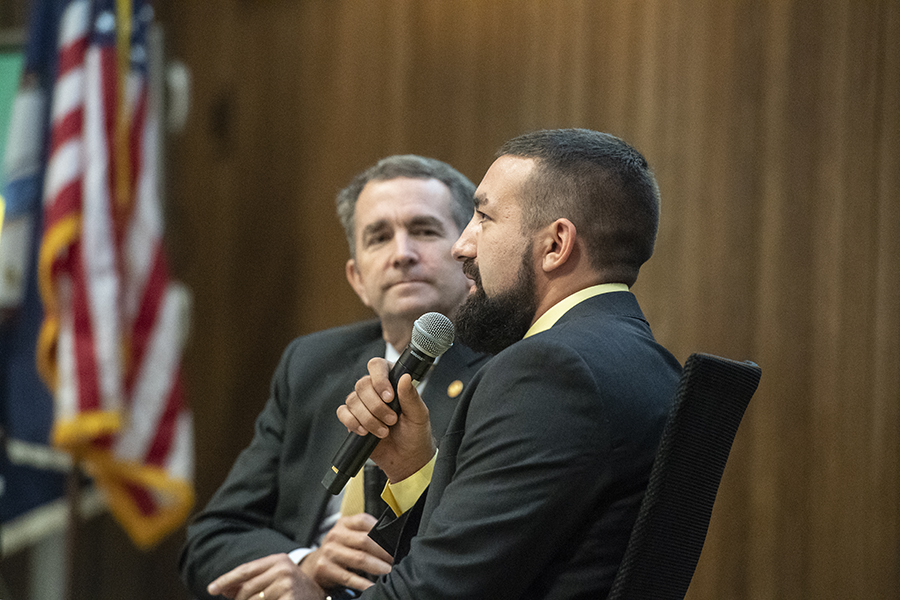
Gov. Northam’s guest on August 20th was Ryan Hall, a young man from Clifton Forge. In high school, Ryan was involved in multiple sports and clubs and was Virginia’s youth attorney general. During a football game his senior year, on the third play of the game, he suffered a tibial plateau fracture, dislocated kneecap, torn ACL, torn MCL and torn meniscus.
To treat Ryan’s extreme pain, he was given opioid painkillers including morphine and dilaudid in the ambulance and as he awaited surgery at the hospital. In the following years, Ryan had his wisdom teeth removed and rebroke his tibia, and after both experiences he was prescribed opioid painkillers. When his opioid prescriptions ran out, he began buying pills illegally and eventually moved on to heroin. He moved out of the home of his father, who is the Sherriff in Alleghany County, sold his books, and dropped out of college.
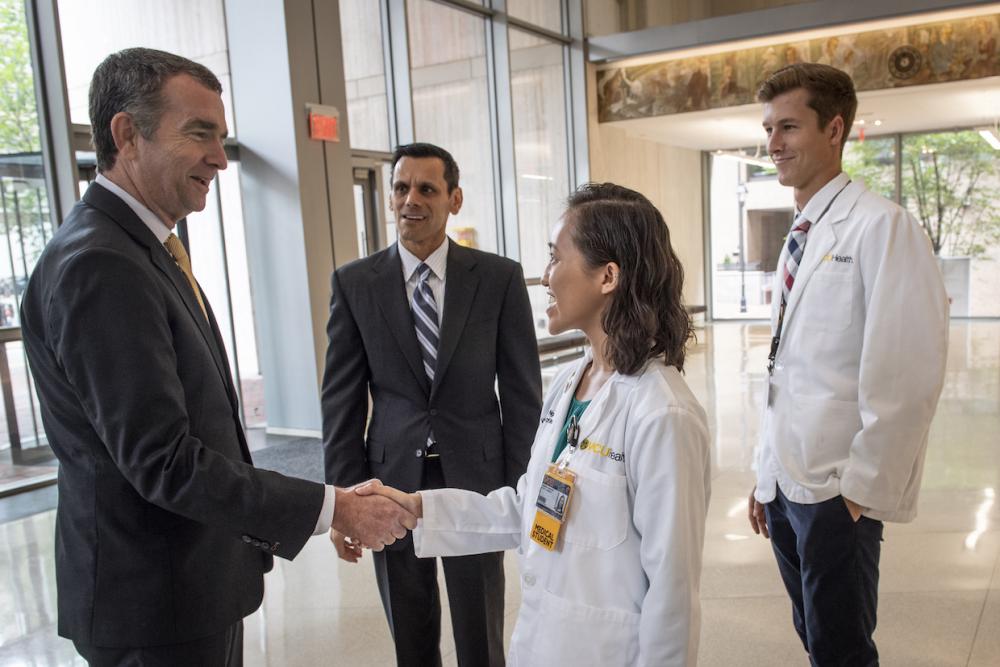
“I hear all the time that (people with substance abuse disorders) are bad people, that they are out there stealing and committing violent crimes,” Gov. Northam advised the medical students and providers this month. “But they are people who are in your family, they are your neighbors and they are your friends. This is a young man who was doing well in high school and was on a track to perhaps sit where you are today, but because of an injury on the football field he ended up going down a different path. So, when you’re out there taking care of people, remember that these are good people who are just like you and me.”
Ryan also had advice for the students and providers. He told them to think hard before refilling prescriptions and to sympathize with patients instead of talking down to them.
“Don’t tell them what to do, but let them know there are options out there to help them,” he said.
Ryan’s path — prescriptions following an injury that led to addiction and heroin — is a common one among addicts. Gov. Northam shared a graph showing that in the 1990s, the percentage of heroin-addicted patients who started with prescription opioids surpassed the percentage who started with heroin. That’s why Gov. Northam said it was important that Virginia has combatted illegal prescription drug supplies through regulations, drug take-backs and monitoring reports that physicians and pharmacists can reference to find information about patients’ histories.
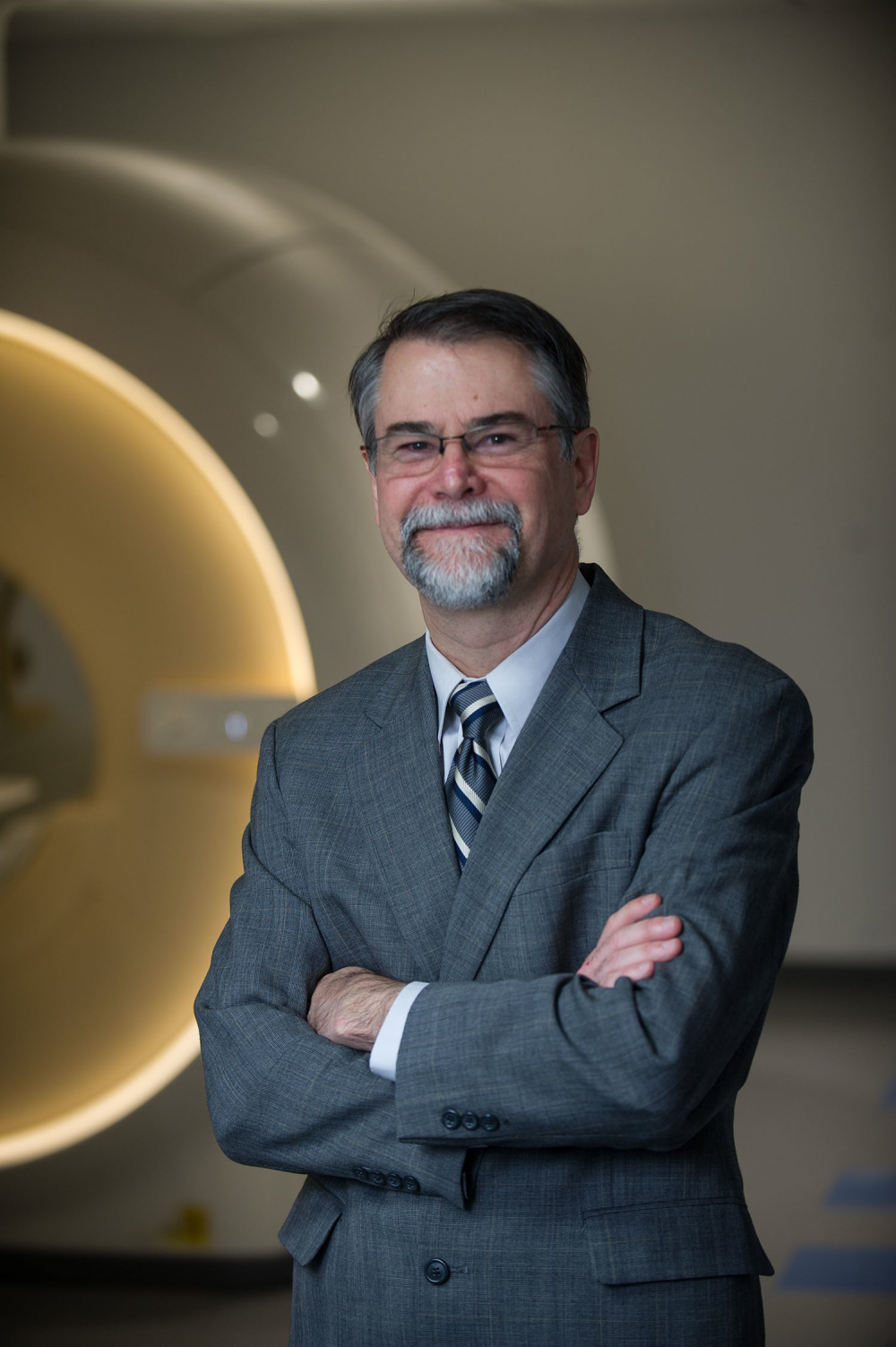
Other positive legislation and policies in Virginia that Gov. Northam highlighted include recent Medicaid expansion, which provides more resources for mental health and addiction services; various community support programs and personnel in key areas throughout the state; drug courts that focus on treatment rather than incarceration; and a blanket prescription written for all of Virginia that allows anyone to purchase the lifesaving opioid overdose reversal drug naloxone.
After overdose victims receive naloxone, it is important that they receive long-term outpatient treatment if they want to begin recovery, which is one of the issues researchers at VCU Health are exploring.
F. Gerard “Gerry” Moeller, M.D., director of VCU’s C. Kenneth and Dianne Wright Center for Clinical and Translational Research is testing the effectiveness of making available in the emergency department a medication that survivors usually don’t receive until they enter long-term treatment, which many never do. The study also provides same-day referrals to clinics such as the VCU Health MOTIVATE Clinic, where social workers, nurses and physicians monitor patients’ weekly progress, provide behavioral counseling sessions in individual and group settings, and continue to administer the medication that began in the ED.
Dr. Moeller also has helped the School of Medicine amend its curriculum to align with new federal pain management guidelines, which recommend significant restrictions on opioid use in chronic pain treatment. In addition, this month the School of Medicine received accreditation for its addiction fellowship, which trains physicians with a focus on addiction prevention and pain management.
Leaders across the MCV Campus who have begun to address the crisis include Omar Abubaker, D.M.D., Ph.D., S. Elmer Bear Endowed Chair in Oral & Maxillofacial Surgery at the School of Dentistry, who has introduced lessons on forms of addiction at the School of Dentistry and lectures on the epidemic to students at the School of Nursing. Krista Donohoe, Pharm.D., and Laura Morgan, Pharm.D., both associate professors at the VCU School of Pharmacy, introduced a new course in 2017 on opioid prescription management and addiction.
This patient care, research and education at VCU Health represents a fight for the lives of our family, friends and neighbors like Ryan, who this month has been drug- and alcohol-free for a full year.
To continue this fight, our researchers need support to prove their ideas merit large grants, our schools need resources to endow and secure teaching positions, and our students need financial assistance through scholarships to help them learn about and find new ways to address important issues like this crisis.
If you would like to know more about how you can join the effort led by our providers, researchers and students, visit our giving page to find all the tools we have available. To search for addiction-specific funds, click “Give Now” at the top of this page, scroll to “search for other funds” and search for keywords such as “addiction” and “translational.”
